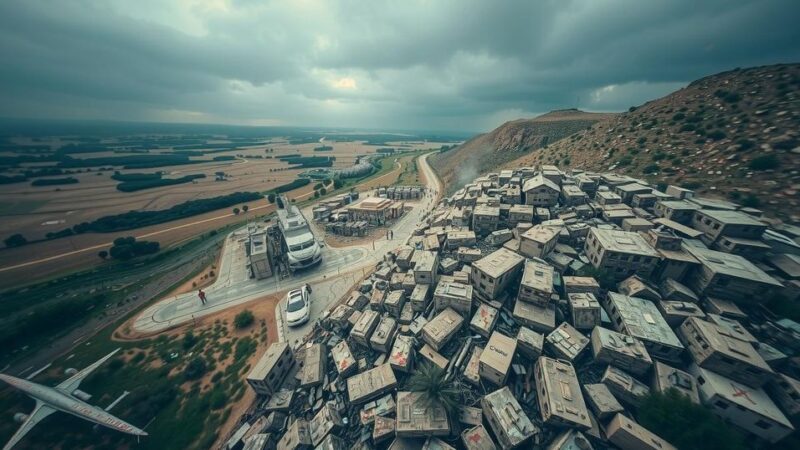On November 18, 2024, Russia vetoed a UN Security Council resolution calling for an end to hostilities in Sudan, amid ongoing conflict between rival generals. British officials criticized the veto, marking it as a significant barrier to peace efforts. The conflict has severely affected civilians, prompting international concern over the humanitarian crisis. Russia’s stance reflects its evolving alignment in the Sudan conflict, complicating UN diplomatic efforts.
On November 18, 2024, Russia exercised its veto power in the UN Security Council against a resolution calling for an immediate cessation of hostilities in Sudan, where a conflict between two rival military factions has been ongoing since April 2023. The British and Sierra Leonean-sponsored draft urged both parties to cease fighting and engage in dialogue towards establishing a national ceasefire. British Foreign Secretary David Lammy condemned Russia’s decision, labeling it a “disgrace” and criticizing Moscow’s deputy ambassador for failing to engage during the council meeting.
The Security Council, plagued by divisions among its permanent members, faces challenges in addressing international conflicts, including the ongoing tensions between the United States and Russia over Ukraine. American ambassador Linda Thomas-Greenfield expressed disapproval of Russia’s obstruction, while Russian Deputy Ambassador Dmitry Polyanskiy criticized the resolution’s lack of acknowledgment of Sudan’s legitimate governing body. The ongoing conflict in Sudan has resulted in catastrophic humanitarian repercussions, with over 11 million displaced and nearly 26 million facing acute food shortages.
The conflict in Sudan can be traced back to an aggressive power struggle between General Abdel Fattah Al Burhan and General Mohamed Hamdan Daglo, both of whom previously held key military positions. The cessation of hostilities has been complicated by geopolitical tensions, particularly the differing priorities of the United States and Russia. The unresolved conflict has prompted significant international attention, as humanitarian crises continue to unfold, exacerbating the plight of millions caught in the turmoil. The recent veto by Russia reflects a broader trend of increasing alignment with General Burhan’s faction, indicating a shift from prior neutrality in the Security Council regarding Sudan. This has vital implications for international diplomatic efforts aimed at stabilizing the region and mitigating the humanitarian impact of the conflict.
The UN Security Council’s inability to adopt a resolution urging an end to hostilities in Sudan underscores the challenges faced by international governance structures amidst geopolitical allegiances. Russia’s veto highlights the complexities of diplomatic negotiation against the backdrop of a humanitarian crisis that continues to escalate. The fate of the Sudanese population remains precarious, with calls for urgent action growing louder amid rising civilian casualties and displacement. Without cohesive international support, prospects for peace and stability in Sudan remain bleak.
Original Source: jordantimes.com




